
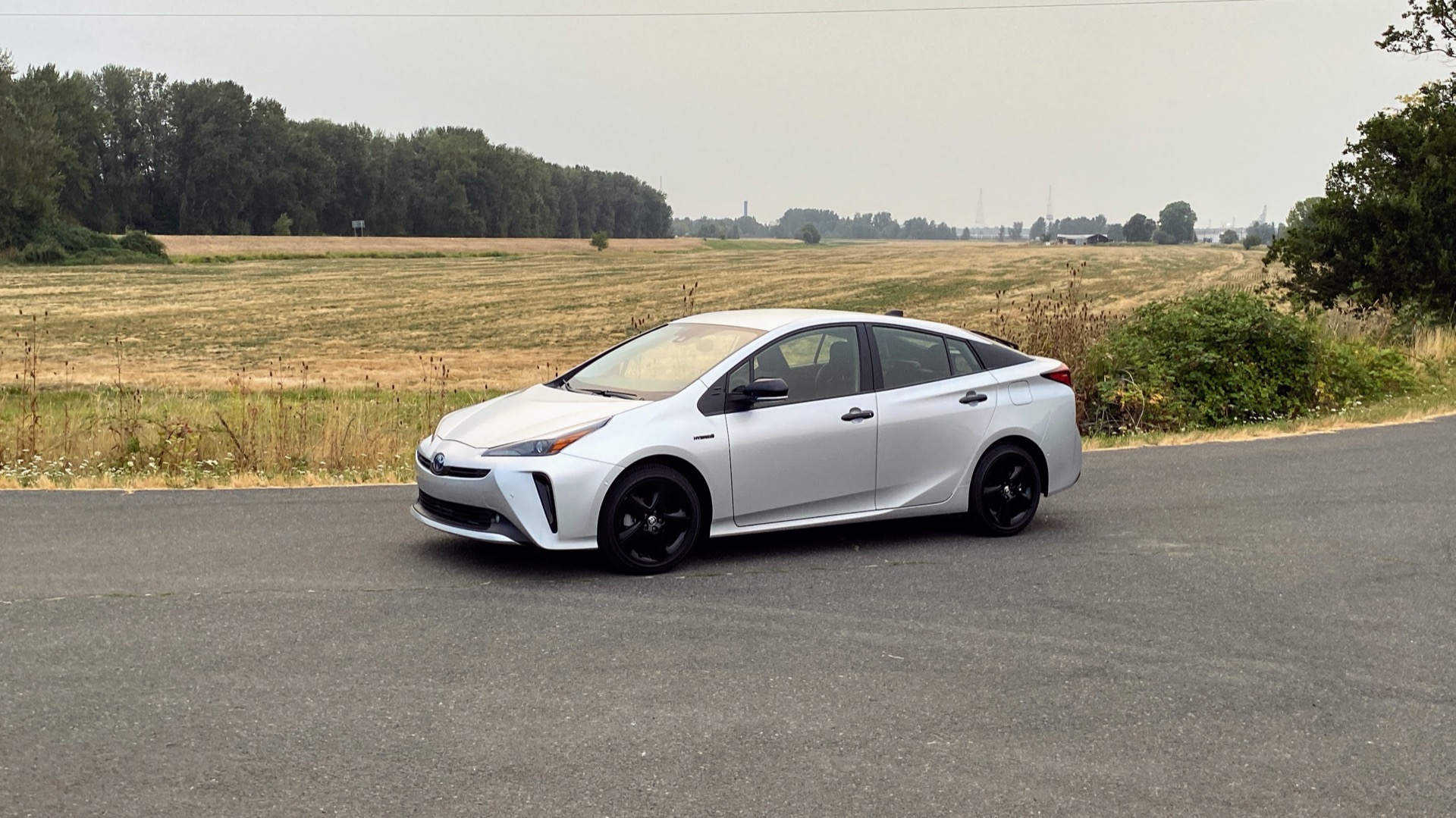
Test drive: 2022 Toyota Prius leads with the mpg numbers
The hybrid-vehicle landscape is changing quickly. The Prius lineup did get a Prius AWD-e all-wheel-drive version and a much better Prius Prime plug-in hybrid in its current and outgoing version, but it remains a pared-down family, with the Prius C and Prius V long gone.
Further, direct aero-efficiency rivals like the Chevy Volt and the Honda Clarity are dust in the wind. Even the Hyundai Ioniq that looked like the Prius’ worst nightmare on arrival fought its fight and already moved on, giving way to a fresh Ioniq EV sub-brand.
Meanwhile, hybrids are becoming the preferred way to get a gasoline vehicle—the one that gets the best mileage and lowest ownership costs and, often, the one that also drives the best.
Not knowing where exactly the Prius was headed—and just ahead of the next-generation 2023 Toyota Prius’ debut—I scheduled some time with the outgoing Prius last month. My 2022 Toyota Prius Nightshade started at $29,445, with some blacked-out wheels that sharpened the look, and arrived with a bottom-line price of just $31,056 and on-the-sticker EPA fuel economy ratings of 54 mpg city, 50 highway, 52 combined.
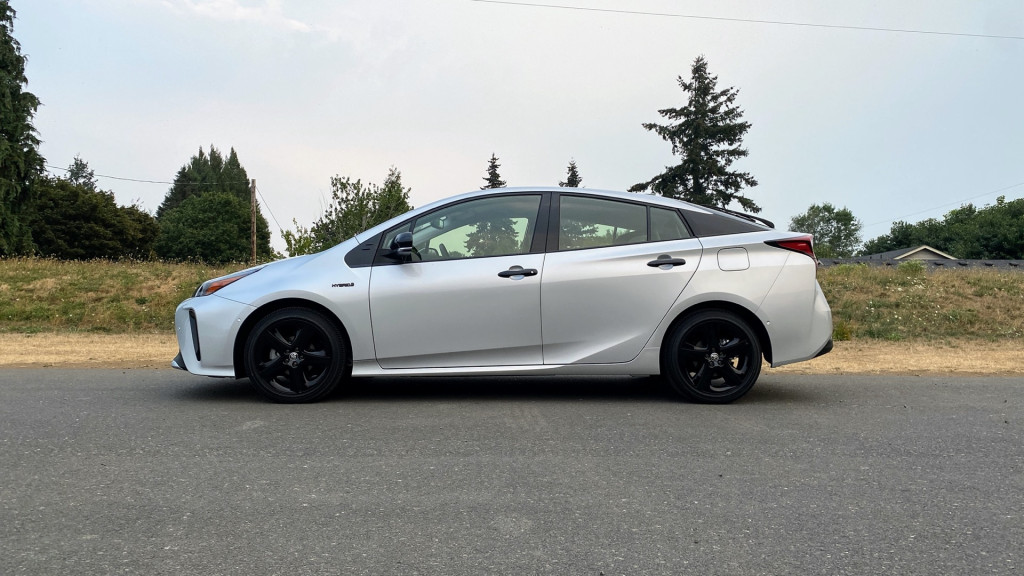
2022 Toyota Prius Nightshade
That’s already a great sticker price for frugal types. And keeping an eye on its greatest asset, its gas mileage, I aimed to make sense of where this efficiency icon stands today.
Revisiting a gas mileage champ
First, I aimed to simply drive the Prius as I would a commuter car. That means nearly 100 miles of mixed commuter conditions in its Normal mode ranging from suburban stop-and-go to some backroads, as well as 30 miles of faster-moving freeway driving, up to 75 mph or so—even including fast-moving jaunts in Power mode. The Prius reported a 55-mpg average.
I then switched to Eco mode but ran the climate control as normal and took the Prius on my 53-mile round trip route—one that includes 700 feet of elevation change and a near-equal mix of under-65-mph freeways, suburban boulevards, and semi-rural rolling-hill backroads. I’ve taken a number of hybrids on this loop, and this time I saw the highest number I’d ever seen on it: more than 65 mpg, according to the trip meter—with outside temps still in the 60s and low 70s.
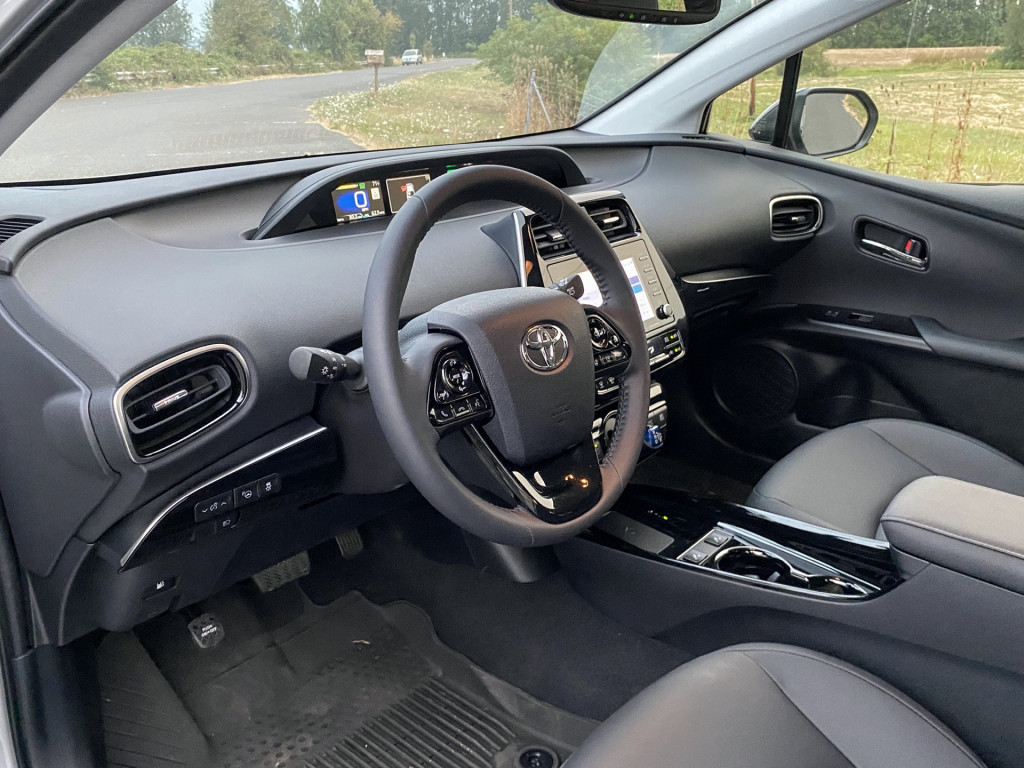
2022 Toyota Prius Nightshade
Finally, keeping it in Eco, I covered two different trips that took me across the Portland metro area, intentionally keeping to surface streets and away from fast-moving freeways. Over these 69 miles, I averaged 61 mpg.
Running the Prius in Eco no longer exaggerates the rubberband feeling of the hybrid system; it’s now a mode that most drivers will be fine sticking with in traffic, and it primarily softens accelerator inputs.
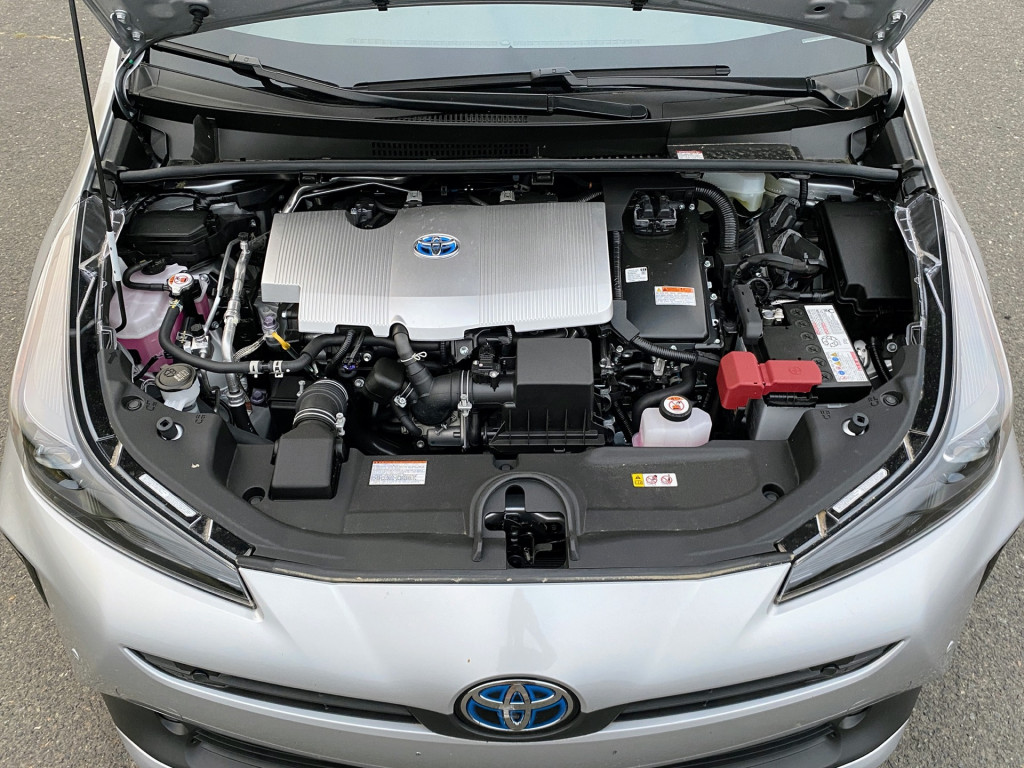
2022 Toyota Prius Nightshade
Strengths
This generation of the Prius feels mature, refined, and even a bit sporty, in a way that previous Prius generations haven’t. Ride quality is great. Steering is light and precise, and the car feels nimble in moderate-speed curves and stable at the 75+ mph that’s typical for some American freeway cruises. Thanks to what must be some great aerodynamic work, mileage doesn’t seem to take a plunge as soon as you pass 65 or 70 mph, as it does in many other hybrids. Cargo versatility is also excellent, with the flat cargo floor giving no hints about packaging challenges.
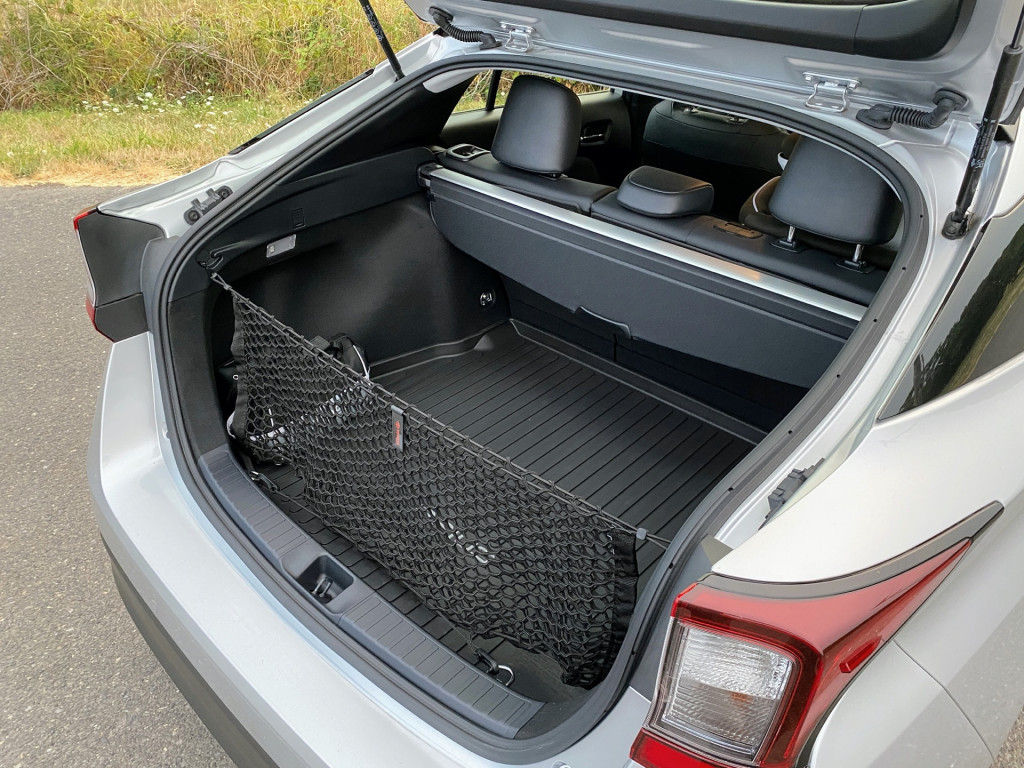
2022 Toyota Prius Nightshade
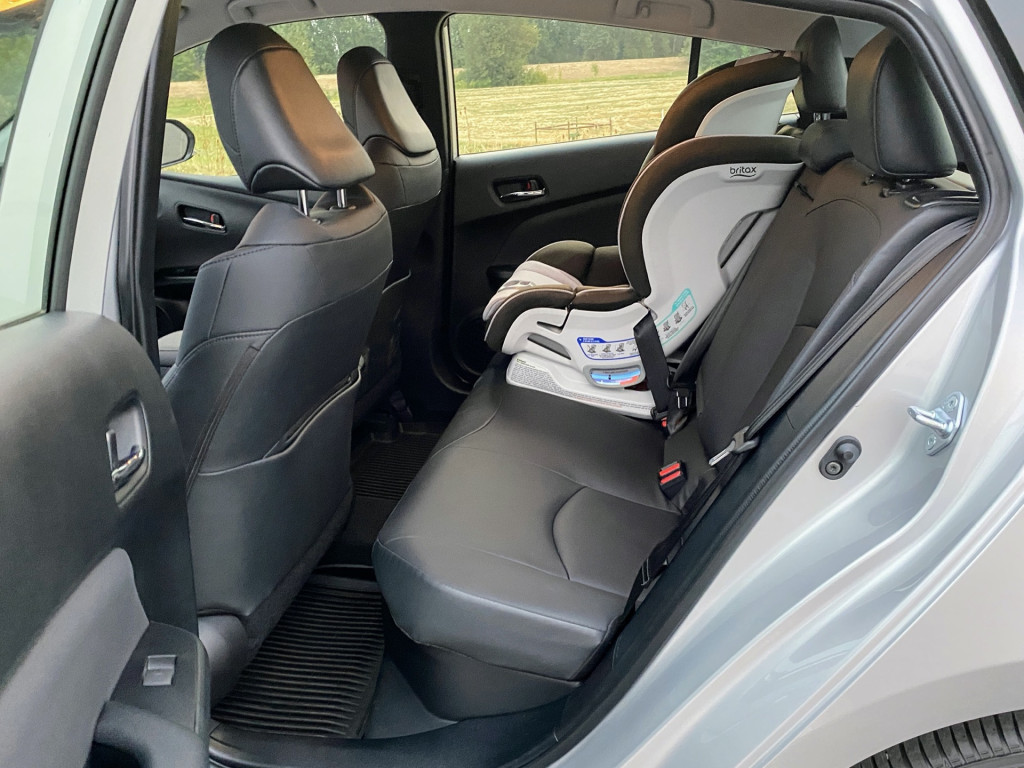
2022 Toyota Prius Nightshade
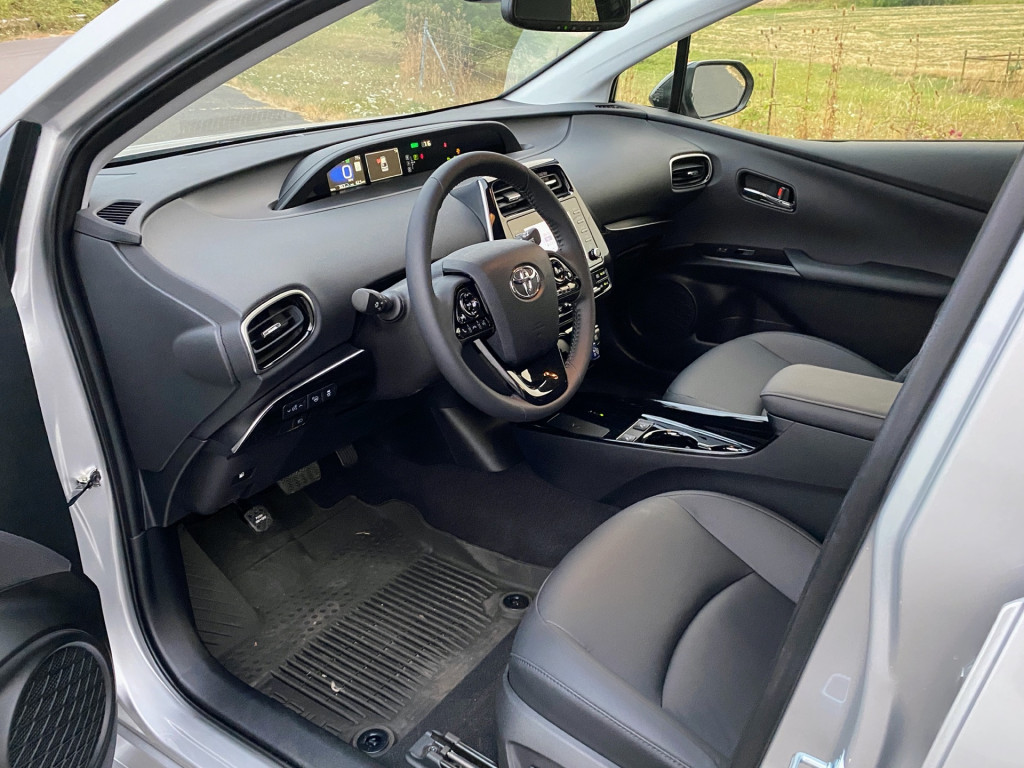
2022 Toyota Prius Nightshade
Weaknesses
My few gripes involved how the car behaves below 20 mph—a bit unexpected, considering I think of the Prius as a city car. On curvy roads, the steering doesn’t center well or let you know where it is, so unwinding the steering wheel is more of an adventure than in most vehicles. There’s not a lot of torque off the line or out of lower-speed corners. Power mode improved the gutless feeling out of corners, but it didn’t help the 121-hp Prius take off any quicker from a stop. Also the cabin is very boomy, and while backseat space is OK once in, the door cut makes it tough for taller guys like me to get in—or to mount a child seat, as I tested.
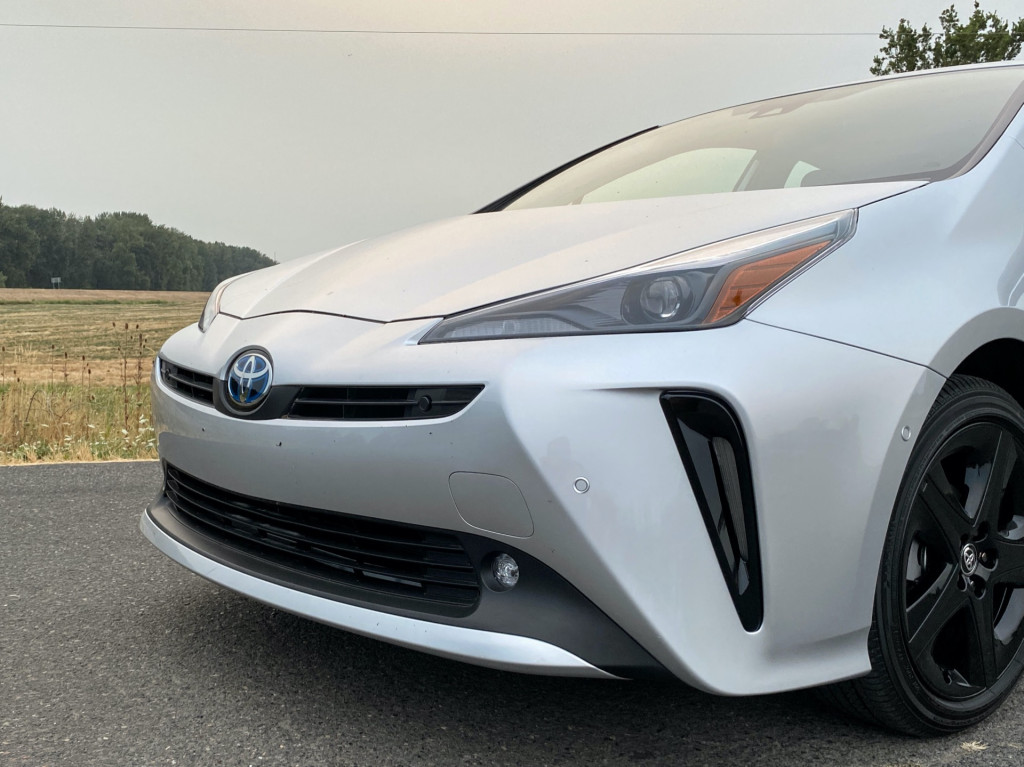
2022 Toyota Prius Nightshade
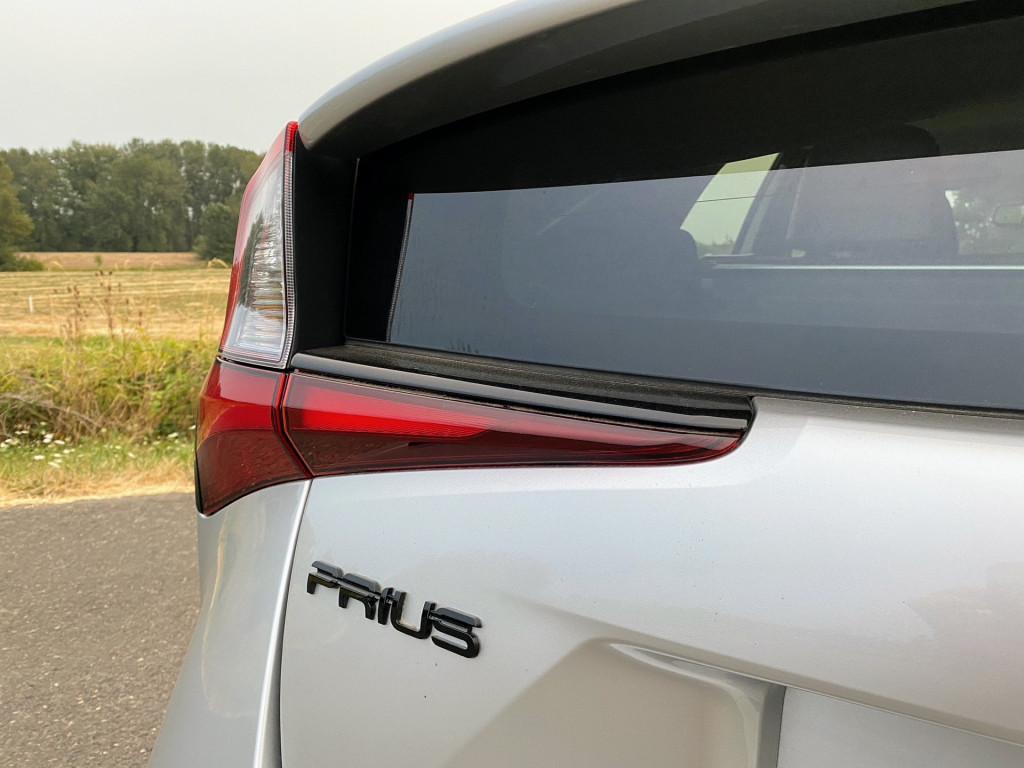
2022 Toyota Prius Nightshade
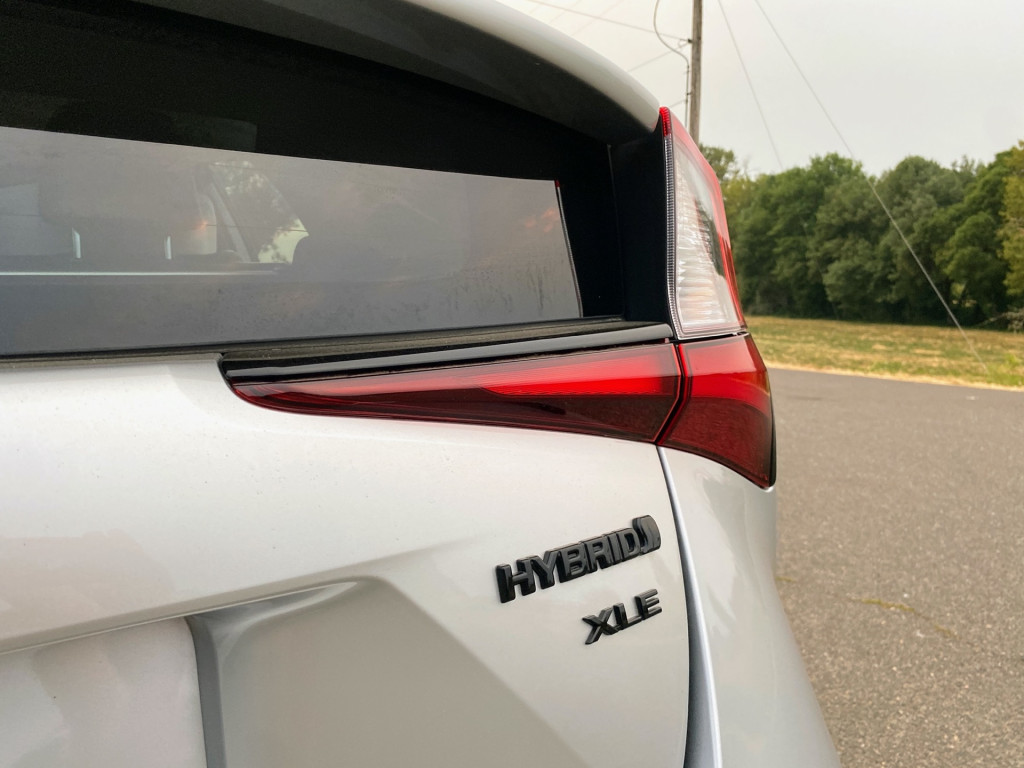
2022 Toyota Prius Nightshade
Bewilderment
The current Prius’ styling stood out as peculiar when it first rolled in for the 2016 model year, and the current mode of auto design doesn’t make it seem any less so. Yes, its form is somehow both aerodynamically efficient and characterful, but with its fighter-jet tailfins, heavily creased flanks, and sharply expressive nose, it’s not a subtle expression—or a good-looking car by most quick takes.
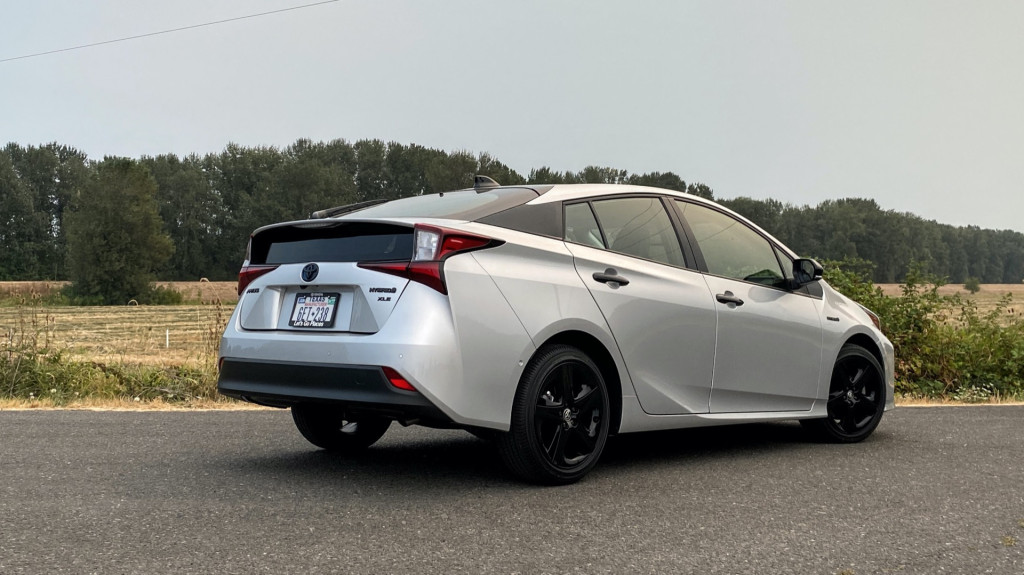
2022 Toyota Prius Nightshade
The takeaway
Many may be a bit disappointed that the 2023 Prius just revealed doesn’t go further in showing Toyota’s technology prowess, or that, simply, it doesn’t go entirely electric. While it’s too early to parse that out here, our time with a very good but also clearly flawed outgoing model served as a reminder that Toyota has kept moving forward with the non-plug-in Prius—in a way budget-challenged apartment-dwellers will most definitely appreciate.
The price is right, and the mileage is astoundingly good. But as for setting a template for the future of the car? It passed that torch a long time ago.
Add a comment Cancel reply
Related posts


EV Guide: How to Care for Your Electric and Hybrid Car











